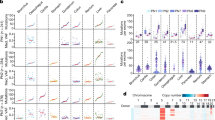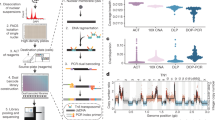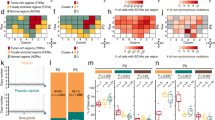Abstract
The establishment of a new prostate cell line (BM1604) from a human prostatic adenocarcinoma is reported. The line was rapidly established by culture of tissue on an extracellular matrix, previously laid down by culture of non-related cells. The method has been shown to work well, and other prostate lines have recently been cultured in this way. The cells have a doubling time of 28 h. DNA fingerprinting comparison of the genome from the tumour, the germline and the cells shows that somatic mutations have occurred in the tumour and that clonal selection has clearly occurred in establishment of the line. Many somatic mutations are apparent in the selected cells, which are now stable in culture. This method and the cells may be a useful addition to the limited material available for the in vitro study of prostate cells.
This is a preview of subscription content, access via your institution
Access options
Subscribe to this journal
Receive 24 print issues and online access
$259.00 per year
only $10.79 per issue
Buy this article
- Purchase on Springer Link
- Instant access to full article PDF
Prices may be subject to local taxes which are calculated during checkout
Similar content being viewed by others
Author information
Authors and Affiliations
Rights and permissions
About this article
Cite this article
van Helden, P., Wiid, I., Hoal-van Helden, E. et al. Detection by DNA fingerprinting of somatic changes during the establishment of a new prostate cell line. Br J Cancer 70, 195–198 (1994). https://doi.org/10.1038/bjc.1994.279
Issue Date:
DOI: https://doi.org/10.1038/bjc.1994.279



